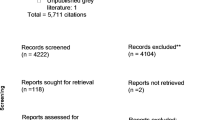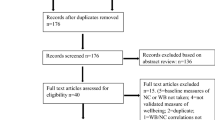Abstract
This study assessed engaged lifestyle activities (e.g., volunteering, traveling, and public speaking) for centenarians of the Georgia Centenarian Study. A total of 285 centenarians and near-centenarians (i.e., 98 years and older) and their proxy informants participated in this study. The Mini-Mental Status Examination (MMSE) was assessed for all centenarians, and proxy informants reported on lifestyle activities and personality traits of the centenarians. Results suggested that participants who had volunteered, traveled, and those who had given public talks and balanced their checkbooks were more likely to show relatively high mental status scores (i.e., MMSE > 17). Personality traits were found to be moderators in the relationship between engaged lifestyle and mental status: Participants with high levels of Emotional Stability, Extraversion, Openness, and Conscientiousness and with high levels of engaged lifestyle were more likely to show relatively high mental status scores (i.e., MMSE > 17), whereas participants with low levels of Emotional Stability, Extraversion, Openness, Agreeableness, and Conscientiousness and with low levels of engaged lifestyle were more likely to show relatively low mental status scores (i.e., MMSE < 18). The results suggest that engaged lifestyle, particularly in combination with personality traits, plays an important role in the level of cognitive functioning among oldest old adults.
Similar content being viewed by others
References
Ackerman, P. L., & Heggestad, E. D. (1997). Intelligence, personality, and interests: Evidence for overlapping traits. Psychological Bulletin, 121, 219–245.
Andersen-Ranberg, K., Vasegaard, L., & Jeune, B. (2001). Dementia is not inevitable: A population study of Danish centenarians. Journal of Gerontology: Psychological Sciences, 56, P152–P159.
Austin, A. J., Deary, I. J., Whiteman, M. C., Fowkes, F. G. R., Padersen, N. L., Rabbitt, P., et al. (2002). Relationship between ability and personality: Does intelligence contribute positively to personal and social adjustment? Personality and Individual Differences, 32, 1391–1411.
Baltes, P. B., & Baltes, M. M. (1990). Psychological perspectives on successful aging: The model of selective optimization with compensation. In P. B. Baltes & M. M. Baltes (Eds.), Successful aging: Perspectives from the behavioral sciences (pp. 1–34). Cambridge, UK: Cambridge University Press.
Bauco, C., Borriello, C., Cinti, A. M., Martella, S., Zannino, G., Rossetti, C., et al. (1998). Correlation between MMSE performance, age and education in centenarians. Archives of Gerontology and Geriatrics, 26(Suppl. 6), 23–26.
Block, J., & Ozer, D. J. (1982). Two types of psychologists: Remarks on the Mendelsohn, Weiss, and Feimer contribution. Journal of Personality and Social Psychology, 42, 1171–1181.
Chamorro-Premuzic, T., & Furnham, A. (2004). A possible model for understanding the personality-intelligence interface. British Journal of Psychology, 95, 249–264.
Costa, P. T., Jr., & McCrae, R. R. (1992). The NEO personality inventory manual. Odessa, FL: Psychological Assessment Resources.
Dixon, R. A., & Backman, L. (1995). Compensating for psychological deficits and declines: Manage losses and promoting gains. Hillsdale, NJ: Erlbaum.
Duchek, J. M., Balota, D. A., Storandt, M., & Larsen, R. (2007). The power of personality in discriminating between healthy and early-stage Alzheimer’s disease. Journal of Gerontology: Psychological Sciences, 62B, P353–P361.
Ericsson, K. A., & Charness, N. (1994). Expert performance: Its structure and acquisition. American Psychologist, 49, 725–747.
Folstein, M. F., Folstein, S. E., & McHugh, P. R. (1975). Mini-Mental State: A practical method for grading the cognitive state of patients for the clinician. Journal of Psychiatric Research, 12, 189–198.
Friedman, H. S., Tucker, J. S., Tomlinson-Keasey, C., Schwartz, J. E., Wingard, D. L., & Criqui, M. H. (1993). Does childhood personality predict longevity? Journal of Personality and Social Psychology, 65, 176–185.
Ghisletta, P., Bickel, J. F., & Lördén, M. (2006). Does activity engagement protect against cognitive decline in old age? Methodological and analytical considerations. Journal of Gerontology: Psychological Sciences, 61B, P253–P261.
Gondo, Y., Hirose, N., Arai, Y., Inagaki, H., Masui, Y., Yamamura, K., et al. (2006). Functional status of centenarians in Tokyo, Japan: Developing better phenotypes of exceptional longevity. Journal of Gerontology: Biological Sciences, 61, 305–310.
Gow, A. J., Whiteman, M. C., Pattie, A., & Deary, I. J. (2005). The personality-intelligence interface: Insights from an ageing cohort. Personality and Individual Differences, 39, 751–761.
Holtsberg, P. A., Poon, L. W., Noble, C. A., & Martin, P. (1995). Mini-Mental State Exam Status of community dwelling, cognitively intact centenarians. International Psychogeriatrics, 7, 417–427.
Hultsch, D. F., Hertzog, C., Small, B. J., & Dixon, R. A. (1999). Use it or lose it: Engaged lifestyle as a buffer of cognitive decline in aging? Psychology and Aging, 14, 245–263.
Jeune, B., & Andersen-Ranberg, K. (2000). What can we learn from centenarians? In P. Martin, C. Rott, B. Hagberg, & K. Morgan (Eds.), Autonomy versus dependence in the oldest old (pp. 9–24). Paris: Serdi.
Jorm, A. F., Korten, A. E., & Hendersen, A. S. (1987). The prevalence of dementia: A quantitative integration of the literature. Acta Psychiatrica Scandinavia, 76, 465–479.
Kliegel, M., Moor, C., & Rott, C. (2004a). Cognitive status and development in the oldest old: A longitudinal analysis from the Heidelberg Centenarian Study. Archives of Gerontology and Geriatrics, 39, 143–156.
Kliegel, M., Zimprich, D., & Rott, C. (2004b). Life-long intellectual activities medicate the predictive effect of early education non cognitive impairment in centenarians: A retrospective study. Aging & Mental Health, 8, 430–437.
MacCallum, R. C., Zhang, S., Preacher, K. J., & Rucker, D. D. (2002). On the practice of dichotomization of quantitative variables. Psychological Methods, 7, 19–40.
Martin, P., da Rosa, G., Siegler, I., Davey, A., MacDonald, M., Poon, L. W., et al. (2006). Personality and longevity: Findings from the Georgia Centenarian Study. Age, 28, 343–352.
Meehl, P. E. (1992). Factors and taxa, traits and types, differences of degree and differences in kind. Journal of Personality, 60, 117–174.
Moutafi, J., Furnham, A., & Paltiel, L. (2004). Why is conscientiousness negatively correlated with intelligence? Personality and Individual Differences, 37, 1013–1022.
Moutafi, J., Furnham, A., & Paltiel, L. (2005). Can personality and demographic factors predict intelligence? Personality and Individual Differences, 38, 1021–1033.
Poon, L. W., Jazwinski, S. M., Green, R. C., Woodard, J. L., Martin, P., Rodgers, W. L., et al. (2007). Annual review of gerontology and geriatrics, vol. 27: Biopsychosocial approaches to longevity (pp. 231–264). New York: Springer.
Pushkar, G., Reis, D., Feldman, M., Markiewicz, D., & Andres, D. (1995). When home caregiving ends: A longitudinal study of outcomes for caregivers of relatives with dementia. Journal of the American Geriatrics Society, 43, 10–16.
Rankin, K. P., Baldwin, E., Pace-Savitsky, C., Kramer, J. H., & Miller, B. L. (2005). Self awareness and personality change in dementia. Journal of Neurology, Neurosurgery, & Psychiatry, 76, 632–639.
Ritchie, K., & Kildea, D. (1995). Is senile dementia age-related or ageing-related? Evidence from meta-analysis of dementia prevalence in the oldest old. Lancet, 346, 931–934.
Salthouse, T. A. (1991). Theoretical perspectives on cognitive aging. Hillsdale, NJ: Erlbaum.
Schaie, K. W., & Willis, S. L. (1986). Can decline in adult intellectual functioning be reversed? Developmental Psychology, 22, 223–232.
Schooler, C. (1987). Psychological effects of complex environments during the life span. A review and theory. In C. Schooler & K. W. Schaie (Eds.), Cognitive functioning and social structure over the life course (pp. 24–49). Norwood, NJ: Ablex.
Sloane, P. D., Zimmerman, S., Williams, C. S., Reed, P. S., Gill, K. S., & Preisser, J. S. (2005). Evaluating the quality of life of long-term care residents with dementia. The Gerontologist, 45, 37–49.
Tombaugh, T. N., & McIntyre, N. J. (1992). The Mini-Mental Status Examination: A comprehensive review. Journal of the American Geriatrics Society, 40, 922–935.
Verhaeghen, P. (1993). Teaching old dogs new tricks: Plasticity in episodic memory performance in old age. Leuven, Belgium: Catholic University of Leuven.
Von Eye, A. (1990). Introduction to configural frequency analysis. New York: Cambridge University Press.
Von Eye, A. (2000). Configural frequency analysis—A program for 32 Bit Windows operating system. Manual for Program Version 2000. Lansing, MI: Michigan State University.
Wilson, R. S., Barnes, L. L., Bennett, D. A., Li, Y., Bienias, J. L., Mendes de Leon, C. F., et al. (2005). Proneness to psychological distress and risk of Alzheimer disease in a biracial community. Neurology, 64, 380–382.
Wilson, R. S., Beckett, L. A., Barnes, L. L., Schneider, J. A., Bach, J., Evans, D. A., et al. (2002). Individual differences in rates of change in cognitive abilities of older persons. Psychology and Aging, 17, 179–193.
Acknowledgments
The Georgia Centenarian Study (Leonard W. Poon, PI) is funded by 1P01-AG17553 from the National Institute on Aging, a collaboration among The University of Georgia, Tulane University, Boston University, University of Kentucky, Emory University, Duke University, Wayne State University, Iowa State University, and University of Michigan. Authors acknowledge the valuable recruitment and data acquisition effort from M. Burgess, K. Grier, E. Jackson, E. McCarthy, K. Shaw, L. Strong, and S. Reynolds, data acquisition team manager; S. Anderson, E. Cassidy, M. Janke, and T. Savla, data management; M. Poon for project fiscal management.
Author information
Authors and Affiliations
Corresponding author
Additional information
"This study is conducted for the Georgia Centenarian Study."
Additional authors for the "Georgia Centenarian Study" include S. M. Jazwinski, R. C. Green, M. Gearing, W. R. Markesbery, J. L. Woodard, M. A. Johnson, J. S. Tenover, W. L. Rodgers, D. B. Hausman, C. Rott, A. Davey, and J. Arnold.
Rights and permissions
About this article
Cite this article
Martin, P., Baenziger, J., MacDonald, M. et al. Engaged Lifestyle, Personality, and Mental Status Among Centenarians. J Adult Dev 16, 199–208 (2009). https://doi.org/10.1007/s10804-009-9066-y
Published:
Issue Date:
DOI: https://doi.org/10.1007/s10804-009-9066-y




